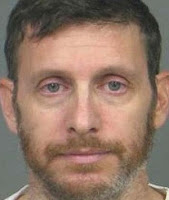Scientific American “I was sexually harassed for four years,” I admitted to a colleague
recently. “That’s awful!” he bellowed in outrage and genuine concern,
before he promptly changed the subject. Sexual harassment is an
uncomfortable topic to discuss with colleagues, especially when you’re
the victim. You’re sharing personal details that they feel they
shouldn’t know, and would rather not know. When your usual conversation
consists of what you watched on TV last night or what you ate for
lunch, it’s TMI to hear about your workmate’s sex life.
On the other hand, we’re so swamped with stories of sexism
and sexual harassment that some people have become indifferent to
them. Take for example the recent “Twitter shaming”. Adria Richards was
at a conference when she overheard two guys making jokes she found to
be sexist. She took a photo of the men and tweeted it, along with the
conference’s code of conduct that prohibits making “sexist, racist or
exclusory jokes.” This incident raised awareness about sexism in the
tech world but it also resulted in one of the men and Richards being
fired by their respective employers. It seemed to many that the whole
issue had gone too far. [...]
Confronted with these stereotypes and influenced by the various
forces of social conditioning, we often don’t know how to react to
sexual harassment anymore. Here are some of the attitudes and opinions
expressed to me, both directly and indirectly, when I began speaking
out about my situation.
When they didn’t know the details, some people reacted with concern
that was tempered with cautiousness. “Could you be overreacting?” or
“Maybe you misread him?” There was suspicion over the delay in
reporting the incidents, “Why didn’t you say something sooner?” and,
“Why did you continue to work with him for so long?” Not observing the
harassment was a cause for doubt. “I couldn’t tell there was anything
wrong!” Some were prejudiced by their positive personal experiences
with the harasser, “I know him. He’s a good guy. He wouldn’t do
that!” My claims were also dismissed with the old adage that boys will
be boys. “It’s a guy thing,” and, “That’s just how men behave.” One man
offered a backhanded compliment, “Hey, what guy wouldn’t be interested
in you!?”
As often happens in these situations, the blame is shifted to the
victim. Like the woman in The Drew Carey Show, the victim may be
labeled a prude or “uptight”. She lacks a sense of humor. She’s crazy.
She may be portrayed as a troublemaker by the accused and his
supporters. To undermine her claims, she might be branded a serial
complainer, where sexism and sexual harassment are often confused, “You
know, she’s accused other men of sexism before.” The case may be
demonized as a witch-hunt, and become a cautionary tale told by those
who fear that they too could be branded a “harasser” over the slightest
comment or glance. “Watch out, or she’ll accuse you too!” I was held
up to scrutiny in this way too. According to gossip about me, I gave
him mixed-signals, I led him on, I’m flirtatious, and I’m a dirty
little slut.
Alternatively, both the accused and accuser are blamed for the
situation. Those who didn’t know the extent of the harassment reacted
as though we simply don’t play well together in the sandbox. “Why don’t
you two just get over it and move on!” The matter was misconstrued as a
lover’s tiff, or that we were a couple in an on again, off again
relationship. Others didn’t have time for my problems, “I have my own
worries.” One person was surprised that I confided in him, saying,
“It’s none of my business.” A number of people commiserated but then
moaned, “I’m sick of talking about sexual harassment!” [...]







